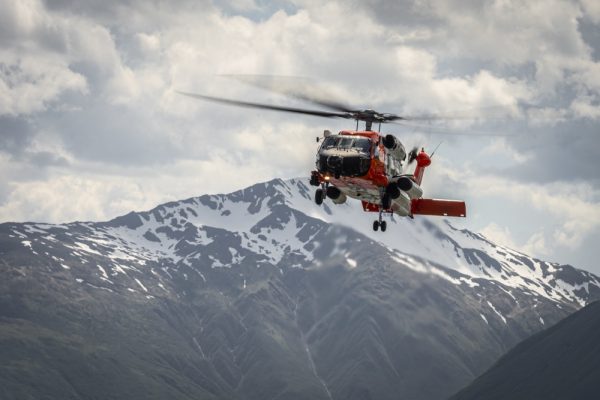
Widespread outages of the Coast Guard’s VHF relay towers persist across Alaska. The federal government has signed a new vendor to begin repairs, but the Coast Guard continues to advise mariners to carry satellite phones and other more sophisticated means of communication as a back up.
For those unfamiliar with marine radios, VHF’s Channel 16 is akin to 911 on the water.
“I don’t know how many people would be that comfortable if suddenly the 911 system went down for months at end, that’s kind of what we have here,” said Ed Page, a retired Coast Guard officer who now runs the Marine Exchange of Alaska.
Marine Exchange offers real-time satellite vessel tracking. But Page says often the simple marine radios are the best things to carry.
“Now the Coast Guard’s suggesting that mariners use their cell phones and these SPOT or satellite transponders,” Page said. “But we shouldn’t have to depend on that. Really, the best technology still should be the VHF call on the radio; it’s been around for years.”
Related: Coast Guard’s VHF signal down for much of coastal Alaska
Poor VHF coverage isn’t a new issue. Blame Alaska’s geography and weather for that. But this many outages at once is not normal. The Coast Guard doesn’t service its towers. It relies on private contractors to do this work for it.
“They have to go to Congress and secure funding and then they usually use defense contractors and it takes many years,” Page said.
In Southeast Alaska, there are 34 relay towers that can beam a distress call from the water to a Coast Guard watchstander. About a third of those are offline, said Coast Guard Lt. Commander Scott McCann.
“So there’s a decent chance that we might not hear any calls for distress on channel 16,” he said.
But he said even if watchstanders don’t hear a call, others nearby might.
“Just because our towers are down, and we might not be able to hear you doesn’t mean that other people’s VHF doesn’t work,” McCann said. “Our towers being down does not affect others. “
Servicing the towers had been the responsibility of Lynxnet, LLC, a Virginia-based subsidiary of NANA Regional Corporation of Kotzebue. But its contract expired last month and it wasn’t renewed.
Silver Mountain Construction, a Palmer-based firm owned by Cook Inlet Region, Inc. also known as CIRI, was recently awarded an $8.5 million contract to take over servicing the sites.
The Coast Guard’s expectation is service will improve over time.
“One of the main things we were looking for when changing over contracts was continuity in support,” McCann said. “We didn’t want to have a gap in support for the radio towers knowing that we have all these issues with them. And that was something that Silver Mountain could provide.”
In recent weeks, much of Prince William Sound has been a dead zone for the Coast Guard’s VHF relay towers. Repair work has been hampered by poor weather. The Coast Guard Cutter Mustang recently stepped up patrols in that region as a precaution.




